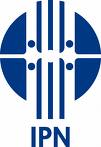
|
Period: | 01.01.2009 - 01.01.2014
|
|
Project management: | Prof. Dr. Horst Schecker
|
|
Financing: | Behörde für Schule und Berufsbildung (Hamburg) |
|
Cooperation: | Prof. Dr. Ute Harms (IPN Kiel) u.a. |
|
Members: | Dr. Veronika Maiseyenka, Dr. Dennis Nawrath |
Which abilities do students need to be able to experiment in physics? How can such abilities be promoted in science instruction? And how effective are instructions based on a clearly formulated model of experimental competence? Theoretical models of experimental competence do not adequately consider process aspects of experimental investigations. In addition, such theoretical models are often difficult to manage for teachers, e.g. with regard to the classification of partial dimensions of experimental competences. So the aim of this project is the development of a model of experimental competence, which is based on educational literature and capable of science instruction. It should be useable for the diagnostics and support of experimental competence. We also evaluate the processes of implementation of this model and the intervention into students' learning processes.
This project is part of the program "komdif" (Kompetenzentwicklungsmodelle als Basis für eine diagnosegestützte Förderung von Schülerinnen und Schülern in der Primarstufe und Sekundarstufe). The aim of the interdisciplinary organised programme "komdif" is the empiric investigation and examination of competence structure models and competence development models, the creation of feedback-instruments for individual students' learning processes and the professionalization of teachers to focus their lessons on competences. These competences are required by the national educational standards and the curricula of the German federal states. komdif is a cooperation ofthe Leibniz Institute for Science and Mathematics Education (IPN) at the university of Kiel and the universities of Hamburg, Bremen and Göttingen.
Science educators and teachers are working together in a symbiotic process to introduce a new teaching-learning culture in schools. The teachers are part of the programme "alles>>könner" which is initialized and financed by the government of the federal state Hamburg. The science educators get access to the research field via this development programme. 54 teachers from primary and secondary schools are involved. The University of Bremen in cooperation with the IPN is responsible for the field of science instruction (physics, biology and chemistry).
Cooperation partners:
 
|
Publications:
| Article in books |
|
Schecker, H., Harms, U., Nawrath, D., Maiseyenka, V., Wollenschläger, M. : Unterricht in den Naturwissenschaften. In: Forschungsbasierte Entwicklung kompetenzorientierten Unterrichts in Zusammenarbeit von Forschung und Schulpraxis - komdif und der Hamburger Schulversuch alles»könner, Waxmann (2015) |
|
Tomczyszyn, E.: "Einen Versuch funktionsfähig aufbauen"-Beispiel aus der Wärmelehre. In: Schecker, H., Nawrath, D., Elvers, H., Borgstädt, J., Einfeldt, S. & Maiseyenka, V. (Hrsg., 2013). Modelle und Lernarrangements für die Förderung naturwissenschaftlicher Kompetenzen., Hamburg: Behörde für Arbeit, Soziales Familie und Integration (2013), 117-126 |
| Article in journals |
|
Dennis Nawrath: Experimentieren lernen und lehren im naturwissenschaftlichen Unterricht der Sekundarstufe I. In: Lynx 2/2014, Hamburg (2014), 5-15 |
|
Tomczyszyn, E., Nawrath, D. und Maiseyenka, V.: Lernarrangements zur Förderung experimenteller Kompetenz. In: Praxis der Naturwissenschaften - Physik in der Schule 5/61 (2012), 44-48 |
|
Nawrath, Dennis; Maiseyenka, Veronika & Schecker, Horst: Experimentelle Kompetenz - Ein Modell für die Unterrichtspraxis. In: Praxis der Naturwissenschaften - Physik in der Schule (2011), 42-48 |
| Article in proceedings |
|
Nawrath, Dennis; Maiseyenka, Veronika; Schecker, Horst: Planungsinstrument zur Förderung von Modellkompetenz. In: S. Bernholt (Hrsg.) Konzepte fachdidaktischer Strukturierung für den Unterricht, Tagungsband GDCP ? Oldenburg 2011, Münster: Lit Verlag (2012), 512-514 |
|
Maiseyenka, V.; Nawrath, D.; Schecker, H.: Modellbasierte Diagnose und Förderung experimenteller Kompetenz. In: D. Höttecke (Hrsg.): Naturwissenschaftliche Bildung als Beitrag zur Gestaltung partizipativer Demokratie, Münster: LIT (2011), 507-509 |
|



